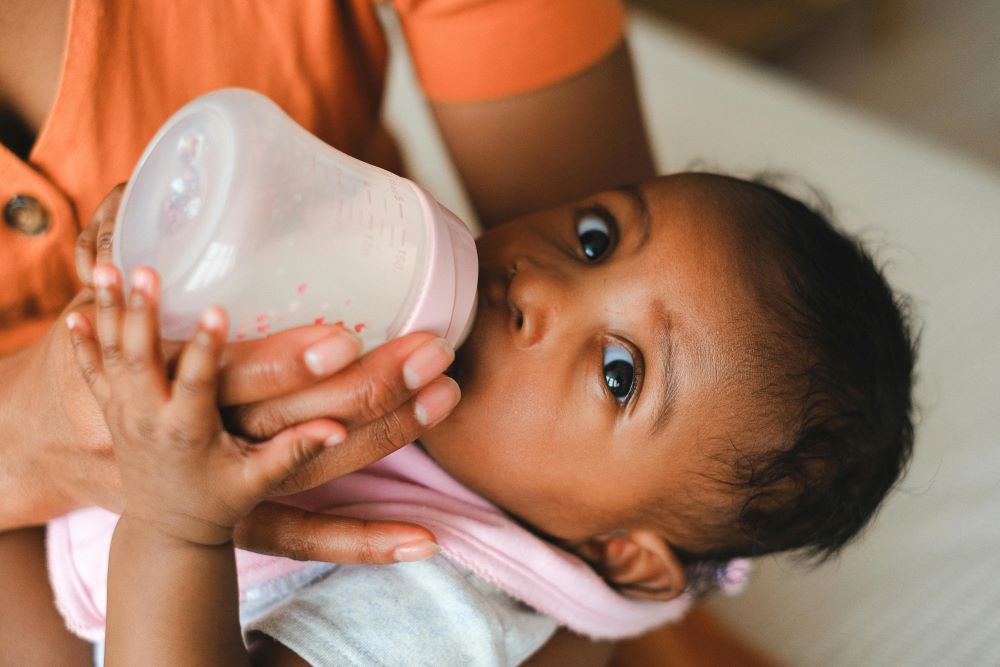Researchers find that exclusively breastfed infants had fewer healthcare consultations and lower associated costs.
Breastfeeding is universally recommended as the best form of nutrition for infants during their first six months. Despite this, it is not the predominant feeding mode in Scotland, leading to significant health and economic implications. A recent cohort study published in PLOS ONE aimed to estimate the impact of infant feeding choices on primary and secondary healthcare service costs in Scotland over a 13-year period.
The study utilized linked administrative datasets in a retrospective cohort design, encompassing 502,948 singletons born in Scotland between 1997 and 2009. The researchers estimated the cost of general practitioner (GP) consultations and hospital admissions by area deprivation and mode of infant feeding up to 6–8 weeks for ten common childhood conditions, followed up to 27 months. They also calculated potential healthcare savings if all infants had been exclusively breastfed at 6–8 weeks. Costs were discounted at 1.5% following health economic conventions, with 2009/10 as the base year.
Over the study period, the total cost of hospital admissions was approximately £111 million, while the cost for the 2% subset with primary care records was £2 million. Exclusively breastfed infants consistently used fewer healthcare services and incurred lower costs compared to formula-fed infants across all deprivation quintiles. The study estimated that at least £10 million in healthcare costs could have been avoided if formula-fed infants had been exclusively breastfed within the first 6–8 weeks of birth.

Within the cohort, 27% of infants were exclusively breastfed, 9% mixed fed, and 64% formula fed at the 6–8-week review. Hospital admissions for infections such as respiratory and gastrointestinal infections were predominant. By six months, 5% of the cohort had been admitted to hospital for at least one of the selected conditions, rising to 14% within 7–27 months. The total cost of hospital care for the cohort over 27 months was £111 million, with formula-fed infants incurring significantly higher costs than exclusively breastfed infants.
The subset of 11,282 children with primary care records showed similar infant feeding characteristics to the full cohort. The majority of GP consultations were for respiratory and gastrointestinal infections, eczema, and otitis media. Exclusively breastfed infants had fewer consultations per child and incurred lower average costs. If all infants in this subset had been exclusively breastfed until the 6–8-week review, 7% of GP consultation costs could have been avoided.
This research emphasizes the economic and health benefits of exclusive breastfeeding, demonstrating that breastmilk can promote equitable child health by reducing childhood illnesses and healthcare utilization in the early years. Increasing breastfeeding rates, particularly in deprived areas, could contribute to narrowing health inequalities in early childhood.
To improve child health outcomes and reduce health inequalities, multifaceted approaches including adapting successful lessons from other countries, implementing comprehensive paid family leave, and fully enforcing the international code of marketing of breastmilk substitutes are necessary. Enhanced evidence to address gaps in clinical, community, and maternal knowledge, applied equitably, is also essential.
Future studies should include additional costs related to personal and societal aspects of infant feeding. For instance, the costs of purchasing formula milk and other feeding accessories for breastfeeding mothers could be substantial. Evaluating these costs would provide a more comprehensive understanding of the economic impact of infant feeding choices.
Sources:
Health and economic benefits of breastfeeding quantified
Levelling up health in the early years: A cost-analysis of infant feeding and healthcare


Join the conversation!